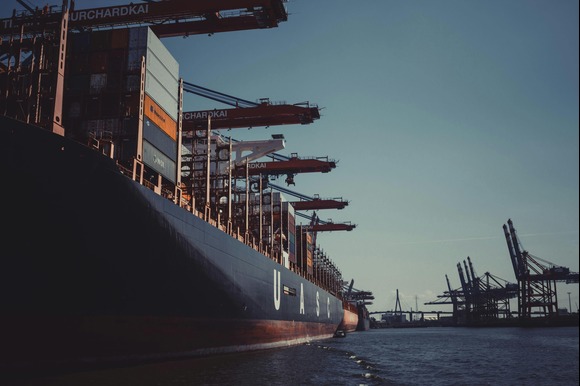The administration of President Donald Trump is contemplating a strategy to halt and examine Iranian oil tankers at sea, as part of an international agreement designed to combat the proliferation of weapons of mass destruction, according to sources familiar with the situation who spoke to Reuters.
Trump has committed to reinstating a “maximum pressure” campaign intended to isolate Iran economically and reduce its oil exports to zero, with the goal of preventing the nation from acquiring nuclear weapons. In the initial weeks of his second term, Trump imposed two rounds of new sanctions targeting companies and the so-called shadow fleet of aging oil tankers that operate without Western insurance and transport crude oil from sanctioned nations.
These actions have largely mirrored the limited measures taken during the administration of former President Joe Biden, under which Iran managed to increase its oil exports through intricate smuggling operations.
Officials in the Trump administration are currently exploring options for allied nations to intercept and inspect vessels navigating critical chokepoints, such as the Malacca Strait in Asia and other maritime routes, as reported by six sources who requested anonymity due to the sensitive nature of the topic. Such actions would likely delay the delivery of crude oil to refineries and could also subject those involved in facilitating the trade to reputational harm and sanctions, according to the sources.
“You don’t need to sink ships or detain individuals to create a chilling effect that suggests this trade is not worth the risk,” one source remarked.
“The delay in delivery… creates uncertainty within that illicit trade network.”
The administration is considering whether maritime inspections could be carried out under the framework of the Proliferation Security Initiative, established in 2003 to prevent the trafficking of weapons of mass destruction. The United States spearheaded this initiative, which has been endorsed by over 100 governments.
This mechanism may allow foreign governments to target Iran’s oil shipments at the request of Washington, according to one source, thereby effectively delaying deliveries and impacting the supply chains that Tehran depends on for its revenue. The National Security Council, responsible for policy formulation within the White House, is reportedly exploring the possibility of conducting inspections at sea, as indicated by two sources.
It remains uncertain whether Washington has approached any signatories of the Proliferation Security Initiative to gauge their willingness to collaborate on this proposal. John Bolton, who served as the US lead negotiator for the initiative during its inception, stated to Reuters that utilizing the initiative to impede Iran’s oil exports would be “fully justified.” He emphasized that oil sales are “obviously critical” for generating revenue for the Iranian government to fund both its proliferation activities and support for terrorism. The White House National Security Council did not provide comments upon request, nor did Iran’s oil and foreign ministries respond to separate inquiries.
On March 2, Iranian President Masoud Pezeshkian informed Iran’s parliament that Trump “has once again signed an order sanctioning many of our ships at sea, leaving them uncertain about how to unload their oil and gas cargo,” referring to the latest round of sanctions imposed by Trump.
POTENTIAL REPERCUSSIONS
Previous efforts to intercept Iranian oil shipments have resulted in retaliatory actions from Iran. In 2023, the United States attempted to block at least two Iranian oil cargoes under the Biden administration, which led Iran to capture foreign vessels, including one chartered by Chevron Corp, consequently driving crude prices higher.
The current low oil price scenario provides former President Trump with various strategies to hinder Iranian oil exports, ranging from imposing sanctions on tanker companies to seizing vessels, as noted by Ben Cahill, an energy analyst at the Center for Energy and Environmental Systems at the University of Texas.
Cahill stated, “If prices remain below $75 a barrel, the White House has greater flexibility to consider sanctions that would impact supply from Iran and other nations. Implementing such measures would be significantly more challenging in a $92 per barrel context.”
He further indicated that assertive US measures could reduce Iranian exports by approximately 750,000 barrels per day in the short term; however, the effectiveness of these sanctions diminishes over time as Iran and its buyers develop methods to circumvent them.
A swift resumption of oil exports from Iraq’s semi-autonomous Kurdistan region could mitigate any decline in Iranian exports. Reports from Reuters have indicated that the White House is exerting pressure on Iraq to permit the restart of Kurdish oil exports or face sanctions alongside Iran.
Despite the sanctions imposed by the US in recent years, Tehran’s oil exports generated $53 billion in 2023 and $54 billion the previous year, primarily through transactions with China, according to estimates from the US Energy Information Administration.
Iran depends on oil exports to China for essential revenue
Faced with limitations on oil exports and extensive Western sanctions, Russia is similarly concentrating on delivering oil to purchasers in China and India.
In recent months, Finland and other Nordic nations have raised alarms regarding the hazards posed by vessels navigating near their coastlines, highlighting the environmental threats of potential oil spills in the event of an accident.
Although European nations have discussed the possibility of inspecting ships carrying Russian oil that may lack valid insurance, minimal action has been implemented, and no proposals have been made for vessels transporting Iranian oil.






